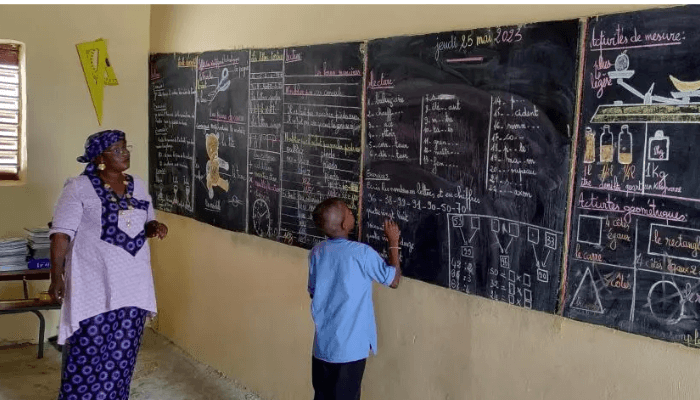Nigeria’s basic education system is currently grappling with a deepening manpower crisis, as just 915,913 teachers are saddled with the responsibility of educating over 31.7 million pupils across public and private primary schools nationwide. This alarming disparity is raising concerns among education stakeholders about the quality of learning and the long-term implications for national development.
Recent statistics obtained from the Universal Basic Education Commission (UBEC) reveal that Nigeria is home to no fewer than 131,377 primary schools—split almost evenly between 65,529 public and 65,848 private institutions. Within these schools are an estimated 31,771,916 learners, with 24.2 million enrolled in public schools and 7.4 million in private ones. However, the number of available teachers falls significantly short of meeting demand, pushing the already fragile system further toward collapse.
The shortage is compounded by poor working conditions, wage delays, and inadequate recruitment efforts. Teachers across several states and the Federal Capital Territory continue to face the non-implementation of the national minimum wage, with some resorting to industrial action. In the FCT, teachers recently embarked on strike after local council authorities failed to implement the revised minimum wage approved by President Bola Ahmed Tinubu.
Worse still, a 2024 investigative report revealed that 18 states failed to recruit a single teacher between 2019 and 2024, a five-year gap that has further widened the teacher-pupil ratio in critical areas, especially in underserved rural communities.
The former Registrar of the Teachers Registration Council of Nigeria (TRCN), Professor Josiah Ajiboye, who spoke while still in office, highlighted the growing concern over the shortage of qualified teachers. He noted that as the number of school-age children and schools continues to rise, the inability to match this growth with adequate teacher recruitment has placed severe strain on learning outcomes.
“The surge in Nigeria’s school-age population and the expansion of both government and private schools pose a complex challenge. The availability and quality of qualified teachers remain a critical factor in delivering effective education. Sadly, the teacher shortage is most severe in rural regions, where students are disproportionately affected,” he said.
Ajiboye added that the teacher-pupil ratio in many schools had become highly unfavourable, reducing the quality of engagement and increasing the likelihood of learning gaps among children.
Echoing these concerns, the National President of the Nigeria Union of Teachers (NUT), Comrade Titus Amba, lamented the state of affairs in many public schools, particularly at the junior and senior secondary levels. According to him, numerous schools across the country—especially those in rural communities—are operating with only one or two teachers, regardless of student population size.
“Reports from the field reveal an alarming manpower crisis, where some schools are barely kept running by one or two teachers. This has created conditions of learning poverty, leaving millions of children without proper academic support and a future that looks increasingly uncertain,” Amba stated.
He called on the federal, state, and local governments to urgently address the crisis by recruiting and supporting more qualified teachers. He further stressed that every Nigerian child deserves access to well-trained, well-motivated educators as a cornerstone for achieving inclusive and sustainable educational development.
As the global community continues to emphasise the critical role of teachers in achieving quality education, Nigeria’s failure to address its teacher deficit threatens to undermine the country’s future human capital and global competitiveness.
